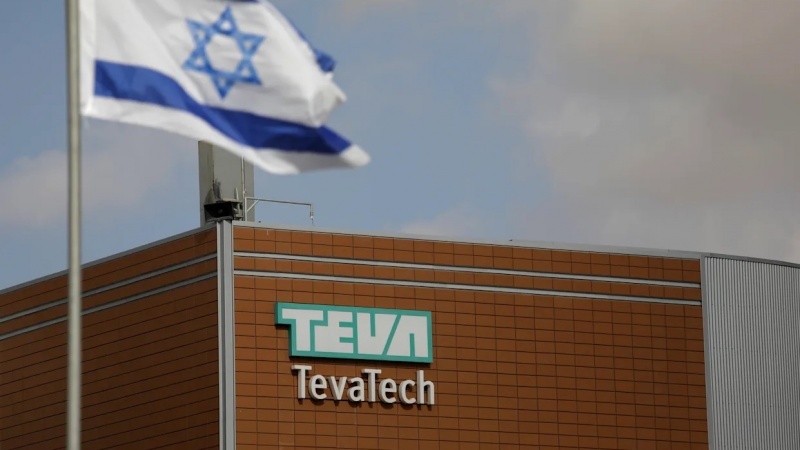Why Israeli company “Teva” is becoming one of the most hated pharmaceutical firms in the world
-

Why Israeli company “Teva” is becoming one of the most hated pharmaceutical firms in the world
Pars Today – The Israeli pharmaceutical company Teva, one of the largest producers of generic drugs globally, is rapidly becoming one of the most hated companies in the pharmaceutical industry.
Teva Pharmaceutical Industries, the Israeli pharmaceutical giant and the world’s largest producer of generic drugs, has faced a wave of public anger in recent years. The company has increasingly become a symbol of ethical contradictions in the pharmaceutical industry. While Teva presents itself as committed to “global health,” it has faced severe criticism over its business practices. These protests have turned Teva into a symbol of corruption and disregard for human-centered principles.
The company’s complicity with the crimes of the Israeli regime in the Gaza war and its indifference to humanitarian crises have sparked global outrage against Teva. In particular, many people, doctors, and nurses have boycotted Teva’s drugs, accusing the company of participating in the killing of children in Gaza.
Over the past year, the humanitarian crisis in Gaza has reached its peak. The killing of Palestinian women and children by Israeli forces has created an acute emergency. Shortages of medicine and medical personnel, along with the destruction of healthcare facilities, have made life extremely difficult for many Palestinian patients, particularly children, women, and those with chronic illnesses.
In this context, Teva, as a pharmaceutical company, was expected to remain neutral and support the people and civilians of Gaza. Instead, the company has taken no action to facilitate access to essential medicines. Its statements have focused solely on supporting Israel and meeting domestic needs. This silence and bias, while Palestinian children die due to lack of medicine, have severely tarnished the company’s image.
In fact, Teva has taken no practical measures to provide the essential medicines needed by Gaza’s residents, even as UN reports and independent human rights organizations have repeatedly emphasized that thousands of children in Gaza urgently require life-saving drugs. The comprehensive Israeli blockade has prevented these critical supplies from reaching those in need.
Under these circumstances, Teva’s statements focused solely on “supporting Israel” and meeting its domestic needs. This stance not only demonstrated blatant indifference to the deaths of thousands of innocent children but also sent a dangerous message to the international community: that the world’s largest generic drug manufacturer is willing to sacrifice ethical and humanitarian principles for political considerations. This policy continues, with the Israeli pharmaceutical company persisting in ignoring human-centered values while actively aligning with Israel’s deadly policies.
Moreover, reports indicate that in recent years, Teva has provided direct support to the Israeli military and participated in aid programs linked to military units. This close association with the army, in violation of the principle of medical neutrality, has severely damaged Teva’s reputation. As a result, the company is now being questioned not only in the political arena but also on ethical grounds.
Teva’s actions have prompted doctors and medical advisors in various countries, including Ireland, to call for a boycott of the company’s drugs starting in 2025. These sanctions are driven not only by Teva’s collaboration with the Israeli regime’s war policies but also by violations of ethical and professional standards in the pharmaceutical industry. Dozens of Irish doctors and advisors urged the government in August and September 2025 to halt the use of Israeli medicines, even emphasizing that “Israeli drugs” should not be given to sick children.
In another move, staff at Dublin’s National Orthopedic Hospital officially called for a boycott of Teva’s drugs. Additionally, videos showing Italian doctors discarding Teva medications in trash bins have become a symbol of widespread public anger, highlighting the contradiction in the behavior and statements of a pharmaceutical company that is supposed to save lives but remains silent in the face of a humanitarian disaster.
Moreover, as an Israeli company, Teva pays a significant portion of its revenue in taxes to the Israeli government. In 2024, the company paid $750 million in taxes, which critics describe as “fueling the war machine.” These payments continue while Israel persists in committing acts widely regarded as genocidal in Gaza.
This situation has sparked public outrage against Teva. For many, the company is no longer seen merely as a pharmaceutical firm but as a symbol of ruthless profiteering and disregard for human rights. Teva’s silence in the face of the humanitarian catastrophe in Gaza stands as proof of prioritizing profit over human life—a record that history will never forget.


